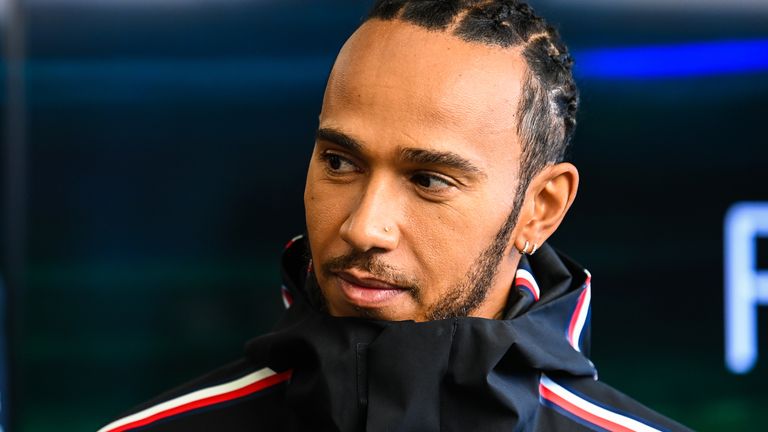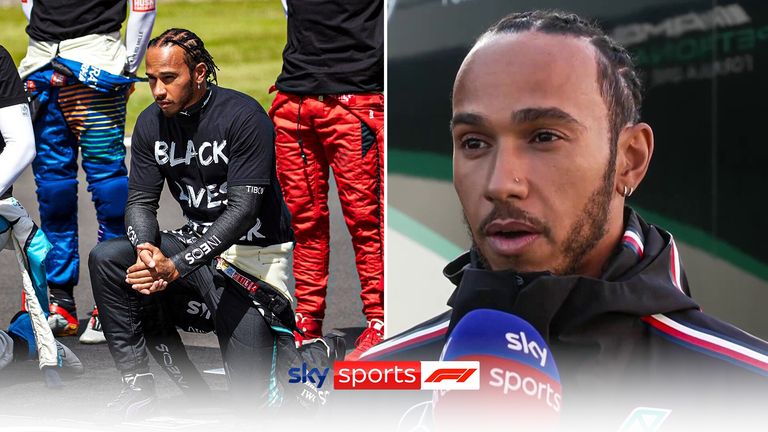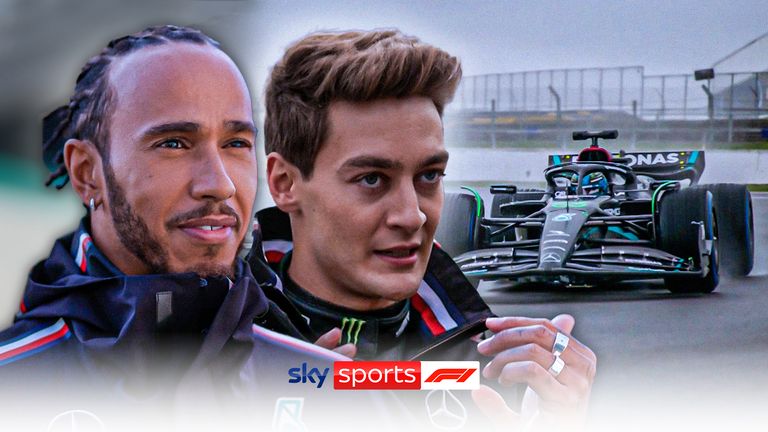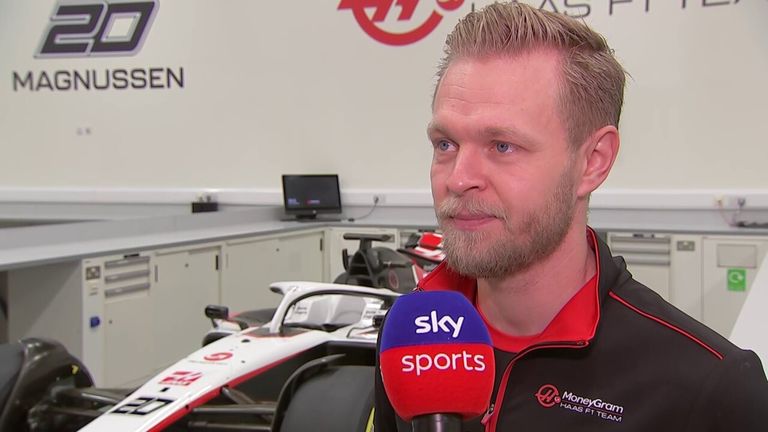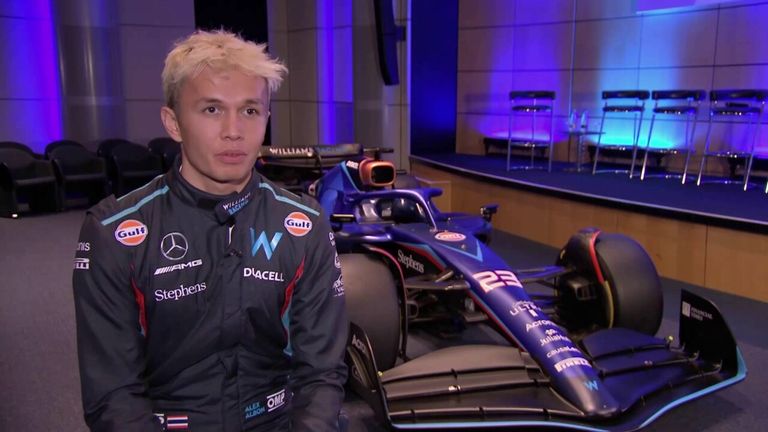Formula 1: The FIA clarifies free speech rule after fierce backlash from Lewis Hamilton and drivers
F1's governing body says drivers can "express their views on any political, religious or personal matter" in "their own space" but they will face sanctions if they defy law while on track; FIA says it could allow some statements in "exceptional circumstances"
Saturday 18 February 2023 08:04, UK
Formula 1's governing FIA has said drivers will be allowed to make political statements only in "exceptional" circumstances after seeking to clarify its contentious new law.
The sporting federation recently updated its rules to prevent "political, religious or personal" remarks being made without prior approval.
However, the FIA has attracted a fierce backlash from a number of drivers - with seven-time world champion Lewis Hamilton this week insisting he will not be silenced, and Lando Norris accusing F1's rulers of treating drivers like schoolchildren.
- 'Hamilton to defy FIA ban: Nothing will stop me'
- Introducing F1's class of 2023 | Explained: Why so many cars are black
- Mercedes complete W14 run 'without any issues'
- Everything you need to know about F1 pre-season testing on Sky Sports
In an attempt to clarify the law - which has threatened to cast a shadow over the new season - the FIA has responded with a three-page document sent to the grid's 10 teams on Friday.
The document says drivers will still be able to "express their views on any political, religious or personal matter" in "their own space", and outside of a race, via their social media channels or during an interview.
However, drivers will face sanctions if they oppose the law while on track - such as during the national anthem before a race or on the podium.
But, in an apparent move to appease growing unrest, the FIA said that in "exceptional" circumstances it "may authorise a participant to make a statement at an international competition that would otherwise be prohibited" with a request submitted four weeks in advance of an event.
It adds that the driver must "provide reason(s) why such permission should be granted", and that each request will be judged on a "case-by-case basis".
Analysis: What does this mean in reality?
Sky Sports News' Craig Slater
The FIA released guidance to the teams on Friday about "political" messaging and where it might be appropriate. There are some grey areas and there still seems a divergence with F1's commercial rights holder. Might there be a "One Love armband" type stand-off in Bahrain?
Sky Sports News understands that with regard to a driver - for example - wearing the pride or rainbow logo on a race helmet, the FIA would expect the driver to request permission in advance to carry that symbol.
Such requests would be handled on a case-by-case basis, and the location of the event would be a consideration.
F1 - F1's commercial rights holder - takes a different view. F1 supported the carrying of the pride logo - including in places like Qatar and Saudi Arabia recently - and would continue to do so.
F1 teams still consider the FIA has given ground on this matter. The clarification represents a significant turnaround from the FIA's original position - as teams understood it.
The FIA says drivers can "express their views on any political, religious or personal matter before, during and after the International Competition, in their own space, and outside the scope of the International Competition", on social media and during media interviews, including the FIA press conferences.
But the clarification goes on to state that in addition to not making particular statements during the drivers' parade, national anthem ceremonies, pre- and post-season driver group photographs and podium (so including visual gestures, such as wearing a certain item of clothing) "participants are not permitted to make political, religious and/or personal statements in violation of the general principle of neutrality during [the] FIA press conferences (except in response to direct questions from accredited journalists)."
The FIA also clarified "political", "religious" or "personal" expressions. A rule breach will have occurred if: "The general making and display of political, religious and personal statements or comments notably in violation of the general principle of neutrality promoted by the FIA under its Statutes, unless previously approved in writing by the FIA for International Competitions, or by the relevant ASN for National Competitions within their jurisdiction".
F1's controversial free speech rule: What have Hamilton and drivers said?
Hamilton, speaking at Mercedes' car launch for the first time on the subject on Wednesday, told Sky Sports News he will "100 per cent" still use his platform to highlight issues.
"These issues are still so important to be spoken about," said Hamilton.
"I think we've come a long way. I think we've seen great progress, but there's more to do and we are still going to places where there are still issues and I know there is work being done in those places too and these things can take time.
"I'm going to continue to be me and continue to fight for things that I am passionate about. I wouldn't let anybody stop me from doing that."
Hamilton added on the rule: "It doesn't surprise me. But nothing will stop me from speaking on the things that I feel that I'm passionate about and issues that there are."
It is not clear what a penalty could be for drivers if they fail to obey the rule.
"I think it would be silly to say that I would want to take extra penalty points for speaking out on things," said Hamilton.
"But I'm still going to be speaking my mind and because we still have this platform, there's still a lot of things that we need to tackle."
Drivers have been in unison in their unhappiness over the rule.
Hamilton's team-mate George Russell, a Grand Prix Drivers' Association director, predicted a change to the new rule before the opening race in Bahrain in two weeks while fellow British driver, McLaren's Norris, said: "I feel like there has been quite a bit of pressure and enough said for there to be a U-turn.
"F1 have made things clear as to what is acceptable and what we should be able to do and I stand by the fact that we should be able to say what we want and what we believe in.
"We are not in a school and we shouldn't have to ask about everything, and say, 'can we do this?' and 'can we do that?' We are grown up enough to make smart decisions."
